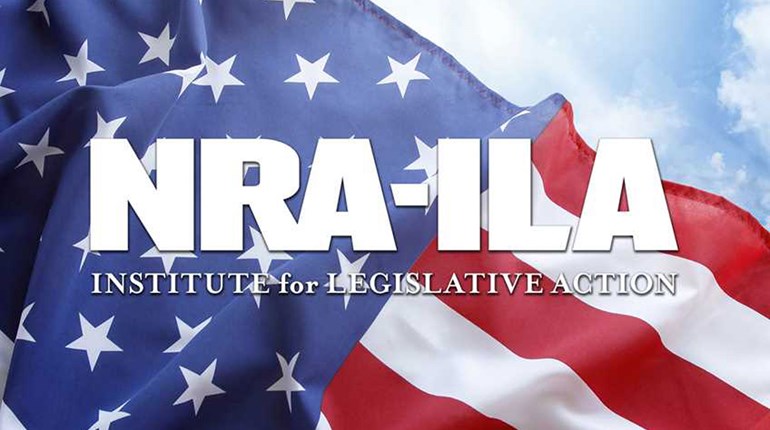
Harlon Carter served as NRA president from 1965 to 1967, as director of the NRA Institute for Legislative Action, and later as executive vice president. A chief architect of the organization’s growing focus on expanding individual Second Amendment rights and fighting anti-gun legislation, Carter also had a distinguished background in law enforcement: He headed the U.S. Border Patrol from 1950 to 1957.
Carter was dismayed by the swiftness with which Americans turned against law enforcement in the wake of high-profile allegations of police brutality, chief of which was the incident of the Rodney King beating in March 1991. He penned this editorial, which ran in the May 1991 issue of American Rifleman, calling on the nation to show compassion for police officers and to stop making them scapegoats for societal unrest.
In the wake of the recent Baltimore riots and a number of other widely publicized claims of excessive force across the country, some Americans have again taken to vilifying the very people who have sworn to keep us safe from criminals. We find Harlon Carter’s words—excerpted here for space—just as timely as they were in 1991.
COP Is Not A Dirty Word!
The attitudes and functions of America’s law-enforcement officers—“cops,” if you will—are the product of the conflictual society in which they and we live. Conflict, in and of itself, is not necessarily bad. One of the indispensible elements of freedom is the freedom to disagree. The solution to conflict eventually lies with the side successful in getting the most people to agree with it.
In today’s world the primary key to gaining a public consensus is coverage by the news media. The press thrives on conflicts, especially violent conflicts. No one expects to read in the newspapers, or see on TV, reports of easy concurrence, placid developments or untroubled movements.
Horror stories about police brutality in America are the current daily fare. Just as police could do no wrong when supporting anti-gun legislation in the past months, they could do no right when the airways and newspapers were filled with stories of police brutality in Los Angeles and other cities. Not once have we seen or heard reports regarding the courteous, businesslike effectiveness of the more than 99 percent of police officers who do their job in a proper, decent and acceptable manner.Cops on the street, both men and women, know in their hearts that the overwhelming majority of the people first want security for their homes and families.
Cops on the street, both men and women, know in their hearts that the overwhelming majority of the people first want security for their homes and families. This is what the cops are generally trying to furnish. They not only know the basic wishes of society, but they also know the deepest underlying intent of the law under which they operate. We must bear in mind that the element of life they deal with on a daily and nightly basis is on the tough side, and they must stay on top of the situation or fold up and go home. They know better than anyone else the people with whom they are associated.
There are unseen emotional pressures on cops that are rarely, if ever, articulated. Many a policeman has to live every day with the memory of a brother officer murdered, his widow living on a meager insurance plan, and the murderer serving “life” in prison—being fed, clothed and given medical attention, all at state expense. At the same time, the officer’s widow has to pay from her pitiful income the expenses for herself and her orphaned children.
Writing laws is not a policeman’s job, any more than the laws of war are left to the generals. It is the job of legislators whom we have a chance to replace every two or four or six years. Of course, those of us who think the first evil of a police state is the prohibition of privately owned firearms must bear in mind that there are two great categories of Americans who cannot or will not be disarmed. They are the miscreants living in the rat-dens of our great cities and the politically and economically privileged classes.
No sensible person can deny that there have been and will be times when violent acts are required as the only means to avoid tragic and disastrous events. To be sure, violence in pursuit of criminal intent, or even sometimes malicious intent, cannot be tolerated from anyone, any group or any profession in an orderly society. There is, however, more to it than that. In the night before His crucifixion, Jesus said to his disciples in a time marked by unrest, civil disturbance and crime, “And he that hath no sword, let him sell his garment, and buy one.” (Luke 22:36). No, Jesus was not suggesting vigilante conduct. He was instead clearly indicating there is a limit of tolerance beyond which righteous good citizens, including the police, should not be expected to abide.
Of course, some optimists believe, or pretend to believe, that the imposition of some sort of waiting period on the purchase of guns, in addition to the waiting periods now required in 24 states and municipalities, will result in some limitation of the numbers of arms in the hands of criminals in this country. That seems rather ridiculous when one considers the billions we are spending on drug control, and yet drugs continue to roll in across our borders by the ton. If we can’t stop drugs with extreme and expensive measures, why does anyone expect we can stop the acquisition of firearms of all types by criminals with a federal law that is enforceable only against those citizens who attempt to legally purchase a gun? The ordinary policeman knows this, and that is the reason he is not clapping his hands gleefully at the prospect of another annoying, ineffective gun law.It is a serious disservice and potentially a lethal blow to our society to conspire in frenzied, random damning of all the dedicated men and women who stand between unprejudiced law, order and justice, and the criminals.
The police “... are doing the difficult and dangerous job society demands, without any understanding by society of what the moral and professional problems are. The public uses the police as a scapegoat for its neurotic attitude toward crime. Janus-like, we have always turned two faces toward the policeman; we expect him to be human and yet inhuman. We implore him to administer the law, and yet, we ask him to waive it … . We admire violence, even against society itself, but condemn force by the police on our behalf … . In many places and in many respects we have been brought to the very edge of savagery and the law of the jungle … . We have to have a decent and reasonably safe place in which to live and work.” (The Crime Game by John D’Alfonso, 1969).
We still believe efficiency is a fault and not a virtue of government. Otherwise, how can one explain why we impose a law we do not enforce, and another that we do not intend to enforce and could not enforce if we wished? This question is difficult for the conscientious, scrupulous cop on the street.
It is a serious disservice and potentially a lethal blow to our society to conspire in frenzied, random damning of all the dedicated men and women who stand between unprejudiced law, order and justice, and the criminals who daily increase their insidious efforts to destroy us.
Despite the polemic cries being heard—Cop Is Not A Dirty Word!



































